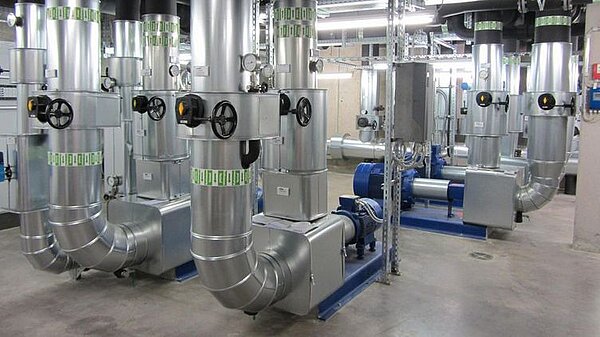High-Performance Computing Center Stuttgart

HLRS's comprehensive sustainability efforts have been coordinated under the auspices of a project titled "Sustainability in HPC Centers," which has been supported by the Baden-Württemberg Ministry for Science, Research, and Art (MWK). In response to the Blue Angel certification MWK Minister Theresia Bauer said, "I congratulate the High-Performance Computing Center Stuttgart on this success. Certification by the Blue Angel is an impressive affirmation of the sustainability strategy of the high-performance computing center. It is admirable to see that all employees at the high-performance computing center have dedicated themselves to sustainability, climate protection, and energy efficiency, including in the operation of the supercomputer."
"HLRS is home to one of Europe's most powerful supercomputers, and supporting cutting-edge research and technology development means high energy requirements," said HLRS Director Prof. Dr.-Ing. Michael Resch. This is particularly true for HLRS's flagship supercomputer, called Hawk, which is among Europe's most powerful computing systems. Offering a peak performance of approximately 26 petaflops (26 quadrillion floating point operations per second) it has an average power consumption of approximately 3.5 megawatts — the same energy requirements as a small German city.

"We recognized several years ago that we have to do everything we can to minimize our ecological footprint, especially with respect to carbon emissions, and have established a comprehensive sustainability program to ensure that we do so," Resch emphasized. In the past 12 months, HLRS was also certified under the Eco-Management and Audit Scheme (EMAS), as well as under the ISO 14001 (environmental management) and ISO 50001 (energy management) international standards. "Receiving certification under the Blue Angel, in addition to our other certifications, shows that HLRS takes its environmental responsibility very seriously and is a sign of the progress we have made. It also means that our system users can be confident that HLRS supports their own efforts toward sustainability."
In accordance with the requirements of the Blue Angel for Energy Efficient Data Center Operation, HLRS has implemented a comprehensive energy management plan. This plan ensures that the necessary energy is used as efficiently as possible and that waste heat produced by the system is captured. These efforts are part of a larger environmental management system at HLRS that covers all activities at the center. The Blue Angel for Energy-Efficient Data Center Operation recognizes adherence to ecological standards and is intended to serve as a guide for selecting environmentally friendly products and services.